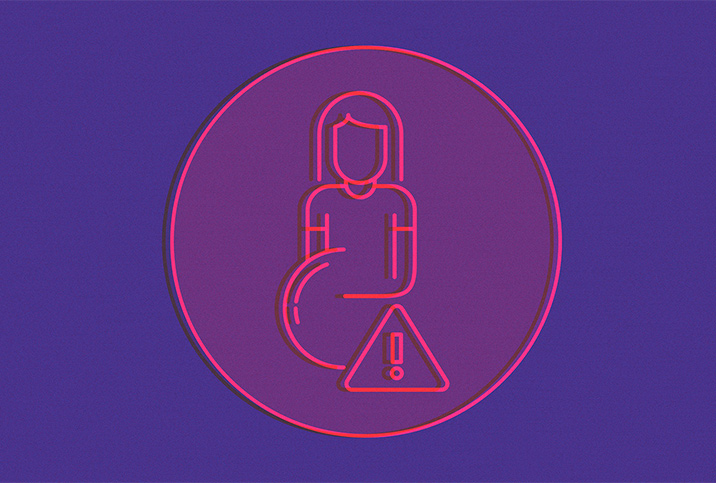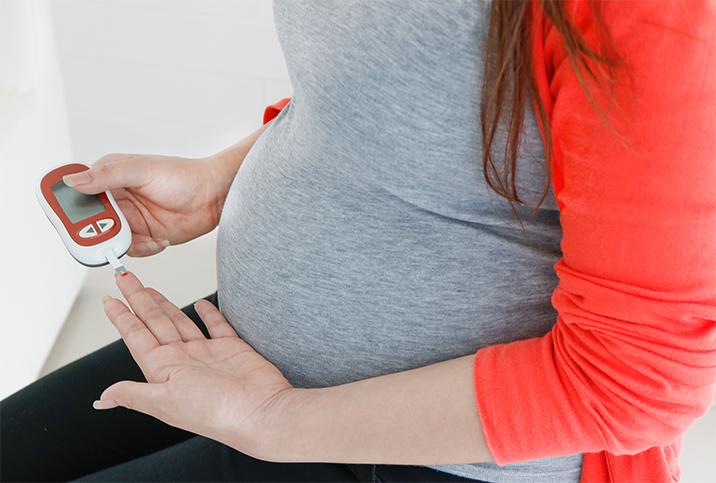Pregnancy Complications

It's not called the miracle of life for nothing. Pregnancy changes the body in extraordinary ways to support the growth of your baby, sparking both mechanical and hormonal changes. Even so, your body is still vulnerable to complications that can occur for a variety of reasons.
As the fetus is entirely dependent on you for nutrients and protection, it's vital to pay close attention to your health, especially your diet and environmental factors. Your doctor and care team will help you develop a plan to ensure your child's optimal health and address any concerns that arise before, during and after birth.
Typical pregnancy symptoms
You and your body will have your own experience during your pregnancy, but some symptoms are pretty common and don't warrant an emergency doctor's visit, like high emotions, morning sickness (which can strike even after morning), heightened sense of smell, "pregnancy brain" and the frequent urge to urinate.
You may also experience excessive saliva production in your first trimester, as well as frequent headaches, gas and constipation. You may be alarmed by being able to clearly see your veins through your skin, or by noticing clear discharge in your underwear. But don't worry, these are common in women nearing the end of their first trimester.
Even further, prepare for dizziness, clumsiness, congestion and skin color changes, hemorrhoids, potential carpal tunnel, and bleeding gums. It's a wide range of symptoms, but your body is working overtime to take care of your new baby, which means issues could arise.
Preeclampsia
Blood pressure changes are common during pregnancy, but you and your doctor should keep a close eye on high blood pressure, as this is tied to preeclampsia, a serious condition that can impact both you and your child.
Women experiencing their first pregnancy and women who are pregnant past age 35 are more at risk for developing preeclampsia, as are women who have any of the following:
- High blood pressure, a history of diabetes or kidney disease before pregnancy
- A family history of preeclampsia
- A pregnancy with more than one fetus
- A body mass index higher than 30
Symptoms that might suggest a diagnosis of preeclampsia include:
- Swelling of the face, hands and feet
- Sudden weight gain
- Breathing difficulties
- Pain in the right side of the belly
- Nausea or vomiting later in pregnancy
- Blurry vision, flashes of light or spots in front of your eyes
- Feelings of faintness or lightheadedness
- Headaches
Though some of these symptoms, like foot swelling and nausea, are normal during pregnancy, make sure to talk to your doctor if you experience them, so you can develop a treatment plan for preeclampsia as soon as possible.
Mild cases may require medication to reduce blood pressure. However, more severe symptoms may require monitoring in a hospital, antihypertensives to decrease elevated blood pressure or even early delivery of the baby.
As a preventive measure, your doctor may recommend you take a low dose of aspirin—about 81 milligrams daily—starting before 16 weeks of pregnancy and through delivery, to reduce the risk of preeclampsia. Calcium supplements can also be used to prevent blood pressure spikes during pregnancy.
Gestational diabetes
In 2 to 10 percent of pregnancies in the United States, a mother will develop gestational diabetes, as the fluctuation of certain hormones alters insulin resistance. Additionally, your body, when pregnant, is naturally more insulin-resistant than normal so that some glucose goes to your fetus instead. If this becomes too extreme, gestational diabetes can occur.
Gestational diabetes develops during pregnancy and increases your risk for type 2 diabetes after giving birth. It is more common in women who had conditions associated with insulin resistance prior to pregnancy, like polycystic ovary syndrome. Also at risk are mothers expecting multiples, with a family history of diabetes, or of African, Native American, Asian, Pacific Islander or Hispanic ancestry. Mothers who are overweight may also have an increased risk of gestational diabetes.
This condition can impact the health of your baby if unmanaged. Commonly, babies born to women with gestational diabetes will be overly large, potentially necessitating a C-section. They may also have low blood sugar and breathing difficulties, or decreased IQs or developmental delays. The mother can also face complications, as gestational diabetes can contribute to preeclampsia.
In most cases, your doctor will recommend lifestyle changes as a treatment plan, including watching what you eat and exercising regularly. In about 10 to 20 percent of cases, mothers will also need additional insulin injections to maintain correct blood sugar levels. Many women are treated with oral hypoglycemics to lower blood sugar during their pregnancy. Some women diagnosed with gestational diabetes will need to monitor their blood sugar throughout the day.
Mental health during pregnancy
Data about the prevalence of mood disorders in pregnant women varies, but some estimates indicate 15 percent of moms-to-be exhibit depressive symptoms.
Further, women who were previously taking medication for their mental illness who then stopped taking it were twice as likely to experience worsened symptoms as those who continued taking their medicine. But it's not as simple as remaining on your prescription—it's largely unknown what effects these medicines have on a developing fetus, so many moms opt against the risk.
However, it's not just moms with existing mental health conditions who experience mood symptoms during pregnancy. Emerging research indicates some symptoms of postpartum depression begin prepartum, so if you're experiencing severe mood changes, don't assume it'll go away with childbirth (postpartum depression can persist up to one year following delivery).
Tell your doctor immediately and seek professional help if your mood seems off.
Mood swings and sensitivity are to be expected from pregnancy, but if something feels wrong, persistent or starts to interfere with your daily functioning, reach out to your social support system and care team to get into contact with a counselor. Pregnancies involve so many moving parts that it's easy to dismiss symptoms, but the earlier you take action, the better the chances are your challenges won't get worse.


















